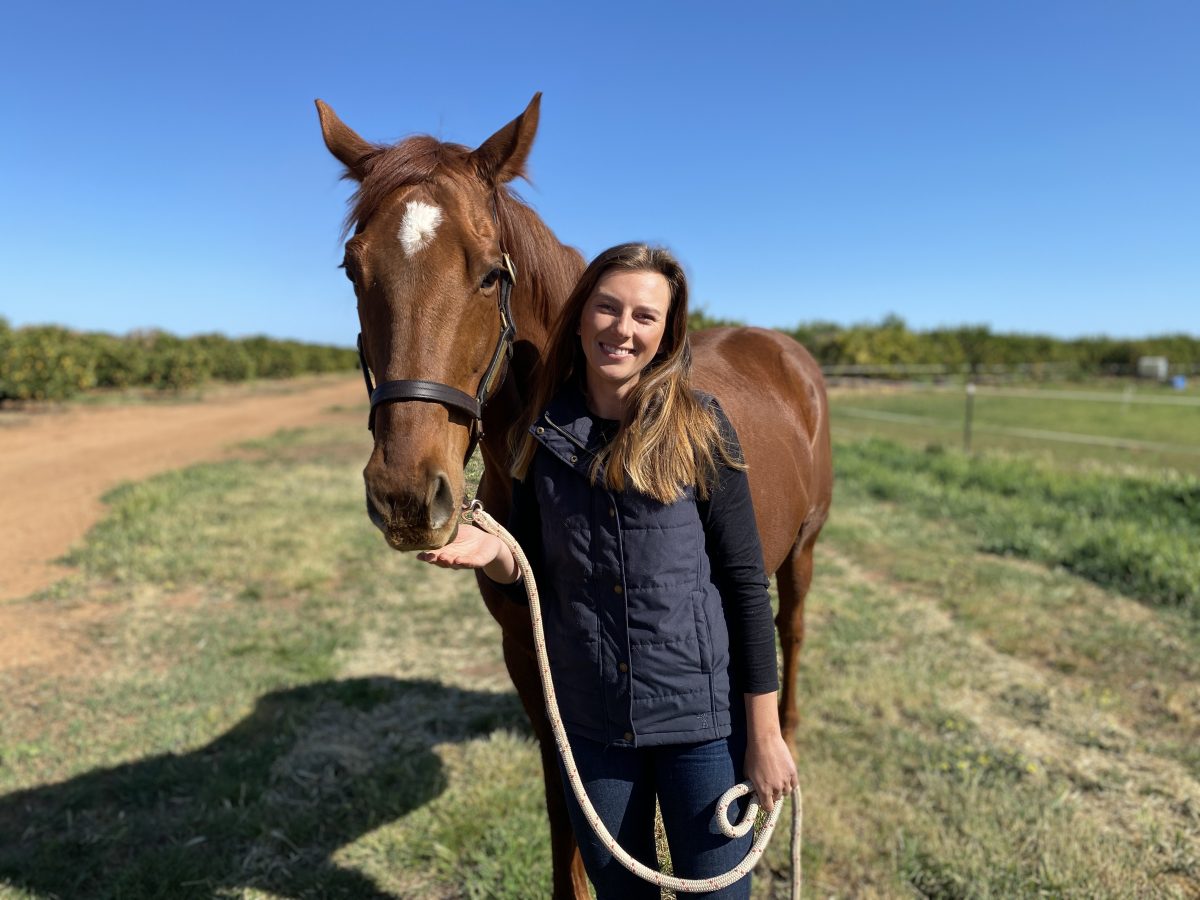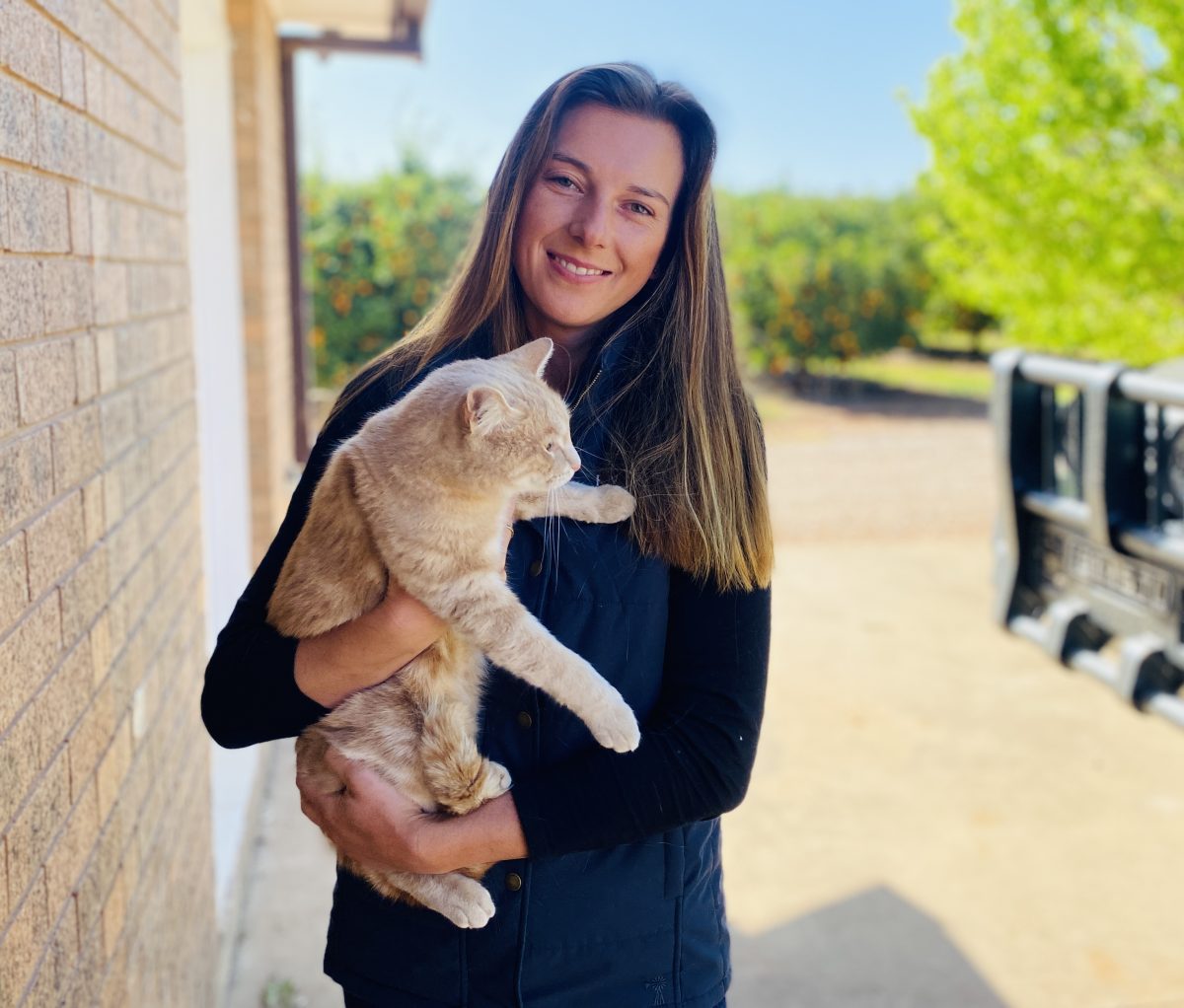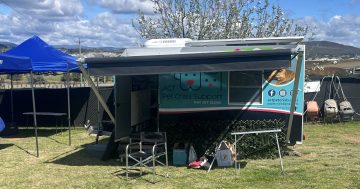
Dr Michelle Noga specialises in horse dentistry. Photo: Oliver Jacques.
A Griffith-based veterinarian who specialises in horse dentistry has won the Griffith Business Chamber award in the Outstanding Start Up category, after pioneering the town’s only mobile vet service.
Dr Michelle Noga was born into a Polish immigrant family and raised in Sydney, where she completed her doctorate in veterinary medicine. As a beach lover, she never imagined herself moving inland, but fate intervened – she attended a country music concert in her city one day and met orange farmer James Battistel, who lived in Lake Wyangan. After dating long distance, Dr Michelle moved to Griffith to be with him, taking up a job at Yoogali Veterinary Centre, where she worked for three years.
Last year, she branched out on her own – setting up Riverina Mobile Vet & Equine Dentistry, which sees her travel to homes and farms within a two-hour radius of her town to provide pet care.
We caught up with the animal doctor to find out about horse dentistry, her mobile service, treating snakes, her thoughts on animals compared with humans, and on fixing the current vet shortage.
How does horse dentistry work?
Horses have really big, sharp teeth, twelve in the back and twelve in the front. Horse teeth continuously erupt, they keep growing and always need correction. As they age, teeth get pushed through and run out. They have a narrow jaw and a big skull, it forms sharp points on the inside which can affect their eating, weight and riding – they should be checked every 12 months.
Do horses ever need fillings or braces?
They can get fillings but it’s very rare, usually they get the teeth taken out. Foals [baby horses] sometimes get braces because they can have weird deformities with their skull, so they put plates in to make the skull grow faster or slower.
Do you ever treat snakes?
I once had to treat a 22-year-old python that had an infection around its mouth. It was the best patient. It just sat on my hand. I grew up with pythons, they don’t scare me.
Who are easier to deal with – animals or humans?
Animals are much easier. They can’t lie. A cat won’t fake a cough to get out of things. Humans, though, can tell you what’s wrong or what they’ve eaten, but animals are reliant on our examination skills.

Dr Michelle likes cats because they never lie. Photo: Oliver Jacques.
Why is there a chronic shortage of vets in rural areas?
I think retention is the issue; there are a lot of people who have dropped out of being vets and are now doing other things. Fatigue is a problem; I can work up to 90 hours a week sometimes.
Is low pay an issue too?
It’s not the pay. We know the pay is crap going in [a starting salary for a vet is $46,000]. Vet practices are just not profitable.
Equipment and medication are subsidised by the Government when it comes to humans. But not for animals. That leaves prices relatively high and salaries don’t match.
How do we fix that?
There’s a push to introduce a Medicare system for animals. I don’t agree with that, it’s not fair on people who don’t have pets.
I think pet insurance is the way to go. Once animals are insured, we can have more specialist equipment and offer gold standard treatment. The earlier you get insurance, the better, it’s very cost effective if you shop around.
Why do you prefer being a mobile vet rather than working in a clinic?
Working in a clinic I’d see these anxious dogs who’d get so worked up about the drive into town – the clinics are bright, noisy and slippery … at home pets are completely different, they’re in their own environment.
I saw a dog in Coolamon that was 35 kg. His owner, an older lady, hadn’t been able to take him to the vet because he was too heavy. It’s nice to be able to help such animals.
Who is a famous person you admire?
David Attenborough. He’s passionate about animals and still educating people at the age of 97.
More information on Dr Michelle’s Riverina Mobile Vet & Equine Dentistry practice can be found on her website.
Original Article published by Oliver Jacques on Region Riverina.








